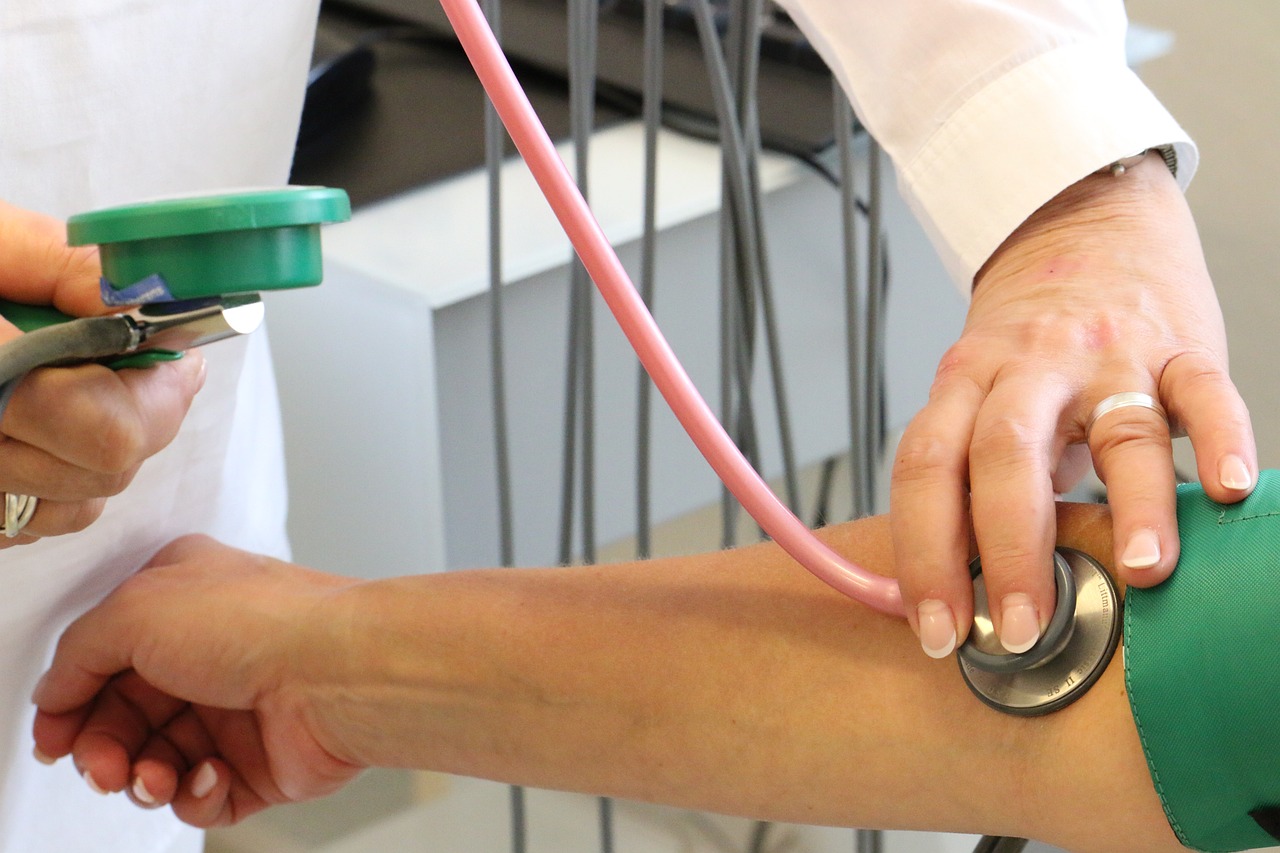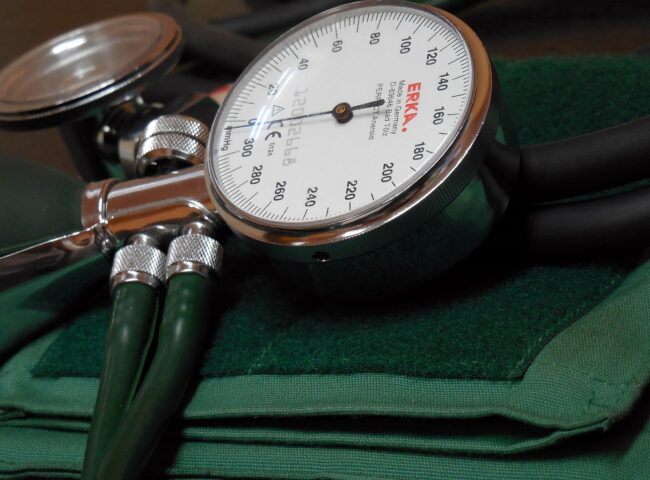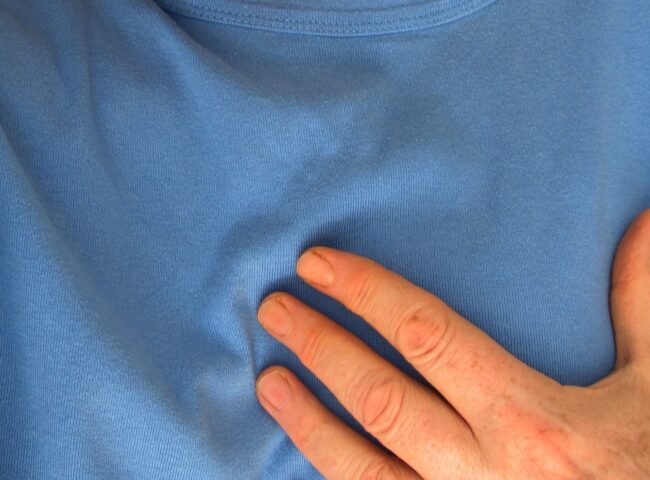Discover the cutting-edge advancements in heart disease treatment for 2023. Stay updated with the latest breakthroughs to protect your heart health effectively.
Table of Contents
Advancing Heart Disease Treatment: Breakthroughs and Innovations in 2023
In the realm of medical advancements, the field of heart disease treatment has witnessed remarkable breakthroughs in 2023. These innovations are transforming the landscape of cardiac care, offering new hope and improved outcomes for individuals dealing with heart-related issues. In this article, we delve into the latest developments that are reshaping how we approach heart disease treatment.
1. Personalized Therapies: One of the most significant strides in heart disease treatment is the shift towards personalized therapies. With advancements in genetic profiling and precision medicine, doctors are now tailoring treatments to individual patients, taking into account their genetic makeup, medical history, and specific cardiovascular conditions. This targeted approach promises more effective outcomes and reduced side effects.
2. RNA Therapies: RNA-based therapies are emerging as a game-changer in treating heart diseases. Researchers are exploring the potential of using RNA molecules to modify gene expression, targeting specific genes responsible for heart-related issues. This innovative approach holds promise for addressing conditions that were previously considered difficult to treat.
3. Non-Invasive Procedures: Minimally invasive and non-invasive procedures continue to expand, allowing patients to undergo treatments with reduced risks and faster recovery times. Technologies like transcatheter aortic valve replacement (TAVR) and percutaneous coronary intervention (PCI) are making it possible to address complex heart conditions without the need for open-heart surgery.
4. Advanced Imaging Techniques: Cutting-edge imaging technologies, such as 3D echocardiography and cardiac MRI, are enabling doctors to visualize the heart in unprecedented detail. This level of precision aids in accurate diagnosis and treatment planning, leading to better outcomes and improved patient care.
5. Next-Generation Medications: Pharmaceutical advancements have led to the development of next-generation medications that target specific pathways and mechanisms involved in heart diseases. From novel antiplatelet agents to cholesterol-lowering drugs, these medications are enhancing the medical management of various cardiovascular conditions.
6. Telehealth and Remote Monitoring: The integration of telehealth and remote monitoring technologies has revolutionized post-treatment care. Patients can now receive continuous monitoring and guidance from healthcare professionals, allowing for early detection of potential issues and timely interventions.
7. Artificial Intelligence (AI) in Diagnostics: AI-powered algorithms are enhancing diagnostic accuracy by analyzing vast amounts of data and identifying subtle patterns that may indicate heart diseases. From detecting arrhythmias to predicting heart failure risks, AI is enabling quicker and more precise diagnoses.
8. Regenerative Therapies: Researchers are exploring regenerative therapies that aim to repair damaged heart tissue and restore normal function. Stem cell treatments and tissue engineering techniques show promise in promoting heart tissue regeneration, offering potential alternatives to traditional treatments.
9. Patient-Centric Care Models: With a focus on holistic well-being, patient-centric care models are gaining prominence. These models emphasize lifestyle modifications, mental health support, and patient education to prevent and manage heart diseases effectively.
10. Virtual Reality Rehabilitation: Virtual reality (VR) is finding its place in cardiac rehabilitation programs. Patients recovering from heart procedures can engage in immersive VR exercises that promote physical activity while making the experience enjoyable. This technology not only aids in recovery but also encourages adherence to rehabilitation routines.
11. Remote Cardiac Monitoring Devices: The rise of wearable technology has paved the way for remote cardiac monitoring devices. Smartwatches and fitness trackers equipped with advanced sensors can now provide real-time data on heart rate, rhythm irregularities, and other vital signs, enabling individuals to proactively manage their heart health.
12. Gene Editing Techniques: Gene editing technologies like CRISPR-Cas9 hold immense potential for correcting genetic mutations that contribute to heart diseases. While still in its early stages, this revolutionary approach could eventually lead to precise interventions at the genetic level.
13. Hybrid Operating Rooms: Hybrid operating rooms combine advanced imaging systems with surgical equipment, facilitating complex procedures that require real-time imaging guidance. This technology is particularly valuable in treating conditions like structural heart diseases and aneurysms.
14. Mind-Body Interventions: Recognizing the mind-body connection, healthcare providers are integrating mind-body interventions like meditation, yoga, and stress reduction techniques into cardiac care plans. These practices can help manage stress, promote relaxation, and contribute to overall heart health.
15. Collaboration Across Specialties: The multidisciplinary approach to heart disease treatment is gaining prominence. Collaboration between cardiologists, surgeons, geneticists, nutritionists, and mental health professionals ensures a comprehensive strategy that addresses all aspects of a patient’s well-being.
16. Vaccination and Heart Health: In light of recent health crises, research is exploring the relationship between vaccinations and heart health. Studies are investigating how vaccines might impact cardiovascular risk factors and reduce the incidence of heart diseases.
17. Addressing Disparities: Efforts to address health disparities in heart disease treatment are gaining traction. Researchers and healthcare organizations are working to ensure equitable access to innovative treatments and interventions for all populations.
18. Patient Empowerment through Education: Informed patients are better equipped to manage their heart health. Online resources, educational seminars, and patient support groups are empowering individuals to take charge of their well-being through education and self-care.
19. Long-Term Data Analysis: Advances in data analytics allow for the analysis of long-term health data, enabling healthcare professionals to identify trends and tailor treatments based on individual patient journeys.
20. Ethical Considerations and Patient Privacy: As technology and genetic advancements progress, ethical considerations and patient privacy in heart disease treatment become paramount. Ensuring the responsible use of data and transparent communication with patients are critical aspects of these advancements.
Future Considerations:
Looking ahead, the trajectory of heart disease treatment is marked by exciting potential and ongoing challenges. As we anticipate further advancements, it’s important to keep several considerations in mind:
21. Health Equity and Access: Efforts to ensure that the benefits of these breakthroughs reach all individuals, regardless of socioeconomic status or geographical location, will remain a crucial focus. Closing gaps in access to advanced treatments and therapies is essential for equitable heart care.
22. Long-Term Outcomes: Continued research and analysis will provide valuable insights into the long-term outcomes of these new treatments. Monitoring patients over extended periods will help us understand the durability and effectiveness of the interventions.
23. Ethical Use of Technology: With the integration of technologies like AI and gene editing, ethical considerations surrounding patient consent, data security, and responsible innovation will need to be at the forefront of discussions.
24. Lifestyle Integration: While innovative treatments offer hope, lifestyle modifications will continue to play a pivotal role in heart disease prevention and management. Educating patients about the importance of healthy habits remains a cornerstone of heart care.
25. Collaboration and Knowledge Sharing: Advancements are often accelerated through collaborative efforts and knowledge sharing among researchers, clinicians, and industry professionals. Continued collaboration will foster a dynamic environment of innovation and discovery.
26. Adaptability to Emerging Challenges: As new health challenges and global health crises arise, the ability of healthcare systems and providers to adapt these advancements to changing circumstances will be vital.
27. Patient-Centered Experience: With the evolving landscape of heart disease treatment, there is a growing emphasis on providing patients with a more holistic and patient-centered experience. This includes not only effective medical interventions but also emotional support, clear communication, and a focus on the individual’s unique needs and preferences.
28. Preventive Measures: As technology advances, the integration of predictive analytics and risk assessment tools will empower healthcare providers to identify individuals at higher risk of heart diseases early on. This proactive approach will enable targeted preventive measures and interventions.
29. Integrative Medicine: The integration of conventional medical treatments with complementary therapies such as acupuncture, herbal medicine, and mindfulness practices is gaining recognition in heart disease management. This approach aims to address the physical, emotional, and mental aspects of well-being.
30. Global Collaboration: The global medical community’s collaboration in sharing knowledge, data, and resources has the potential to accelerate advancements even further. International collaboration can lead to a more comprehensive understanding of heart diseases and effective treatments.
31. Environmental Factors: Research into the impact of environmental factors, such as air quality, pollution, and climate change, on heart health is an emerging area of interest. Understanding these influences can lead to strategies for minimizing risk factors and enhancing heart health on a broader scale.
32. Continuous Monitoring Innovations: Advancements in wearable devices and mobile health applications will likely continue, providing individuals with real-time monitoring and immediate feedback on their heart health status. This real-time data can empower individuals to make informed decisions about their lifestyle and treatment choices.
33. Patient Advocacy and Education: Empowered patients are agents of change. Active engagement in patient advocacy groups and educational initiatives can foster a deeper understanding of heart diseases, treatment options, and the importance of preventative measures.
34. Artificial Intelligence in Treatment Planning: Artificial intelligence algorithms are being developed to aid in treatment planning and decision-making. These algorithms can analyze vast amounts of patient data to provide personalized treatment recommendations, optimizing outcomes.
35. Rehabilitation and Support Services: Heart disease treatment extends beyond medical procedures; rehabilitation and support services play a critical role in recovery. The integration of innovative rehabilitation techniques and tailored support programs enhances patient outcomes.
The world of heart disease treatment is undergoing a profound transformation in 2023, thanks to groundbreaking breakthroughs and innovative approaches. As we witness the convergence of genetics, technology, and medical expertise, the future of cardiac care holds the promise of improved outcomes, enhanced quality of life, and a brighter horizon for those battling heart diseases. Stay informed, engage with your healthcare professionals, and embrace these advancements as they continue to shape the landscape of heart disease treatment.
The landscape of heart disease treatment in 2023 is defined by a synergy of cutting-edge technologies, scientific breakthroughs, and a dedication to improving patient outcomes. These advancements hold the promise of revolutionizing the way we approach heart health, but they also bring with them the responsibility to navigate ethical, practical, and accessibility considerations. By staying informed, engaging with healthcare professionals, and participating in the ongoing dialogue surrounding heart disease treatment, individuals can contribute to a future where heart health is optimized, and lives are transformed. The journey towards healthier hearts continues, driven by innovation, compassion, and the pursuit of a world where heart diseases are no longer a leading cause of morbidity and mortality.
The landscape of heart disease treatment is undergoing a transformative evolution, fueled by technological innovations, scientific discoveries, and a commitment to improved patient outcomes. As these breakthroughs continue to shape the future of cardiac care, individuals are encouraged to stay informed, engage with their healthcare providers, and embrace the opportunities these advancements offer in their journey towards heart health and overall well-being. With each discovery, we move closer to a future where heart diseases can be managed more effectively, allowing individuals to lead longer, healthier lives. Check our Facebook Page at Fit Life Guidance

Cardio Workouts: Energizing Your Heart and Fitness Journey
Cardiovascular workouts, often referred to as cardio exercises, are an essential component of a well-rounded fitness routine. These workouts get your heart pumping, improve lung capacity, and offer a multitude of health benefits that extend beyond the gym. Whether you’re aiming to shed pounds, boost endurance, or enhance overall cardiovascular health, cardio workouts provide the perfect avenue to achieve your fitness goals.
Key Benefits:
- Heart Health: Cardio workouts strengthen your heart, making it more efficient at pumping blood and oxygen to your body’s tissues. This helps reduce the risk of heart disease, high blood pressure, and other cardiovascular issues.
- Calorie Burn: Engaging in cardio activities burns calories and contributes to weight management. Whether you’re jogging, cycling, or dancing, these workouts help create a calorie deficit, aiding in weight loss or maintenance.
- Endurance Improvement: Consistent cardio training enhances your stamina and endurance levels. Over time, you’ll find that everyday activities become less tiring, and you can engage in physical tasks with greater ease.
- Mood Enhancement: Cardio workouts trigger the release of endorphins, also known as “feel-good” hormones. This natural mood booster can alleviate stress, anxiety, and even mild depression.
- Metabolism Boost: Regular cardio exercises elevate your metabolism, leading to increased calorie burn even when you’re at rest. This can contribute to better weight management over the long term.
Variety of Cardio Workouts:
Cardio workouts encompass a wide range of activities, ensuring there’s something for everyone’s preferences and fitness levels. From high-intensity interval training (HIIT) to steady-state jogging, from dance-based workouts to cycling, you have numerous options to choose from.
Getting Started:
Before beginning any cardio routine, consider these tips:
- Consult Your Doctor: If you have pre-existing health conditions or concerns, consult a healthcare professional before starting a new exercise program.
- Warm Up: Always start with a warm-up to prepare your muscles and cardiovascular system for the workout.
- Gradual Progression: Gradually increase the intensity and duration of your workouts to prevent overexertion and injury.
- Stay Hydrated: Hydration is crucial during cardio workouts. Drink water before, during, and after exercise.
- Proper Form: Pay attention to your posture and technique to avoid strain on your muscles and joints.
- Listen to Your Body: If you feel any discomfort, pain, or excessive fatigue, stop the workout and rest.
Incorporating Cardio into Your Routine:
Aim for at least 150 minutes of moderate-intensity cardio exercise or 75 minutes of vigorous-intensity exercise each week, spread across several sessions. You can mix and match activities to keep things interesting and avoid monotony.
Cardio workouts are a cornerstone of overall fitness and heart health. By engaging in regular cardiovascular exercises, you’re not only improving your physical well-being but also enhancing your mental and emotional vitality. Whether you’re jogging through your neighborhood, dancing to your favorite tunes, or hitting the cycling studio, cardio workouts are a powerful tool for creating a healthier, happier you. Read More at Dynamic Dance Workouts







Leave feedback about this